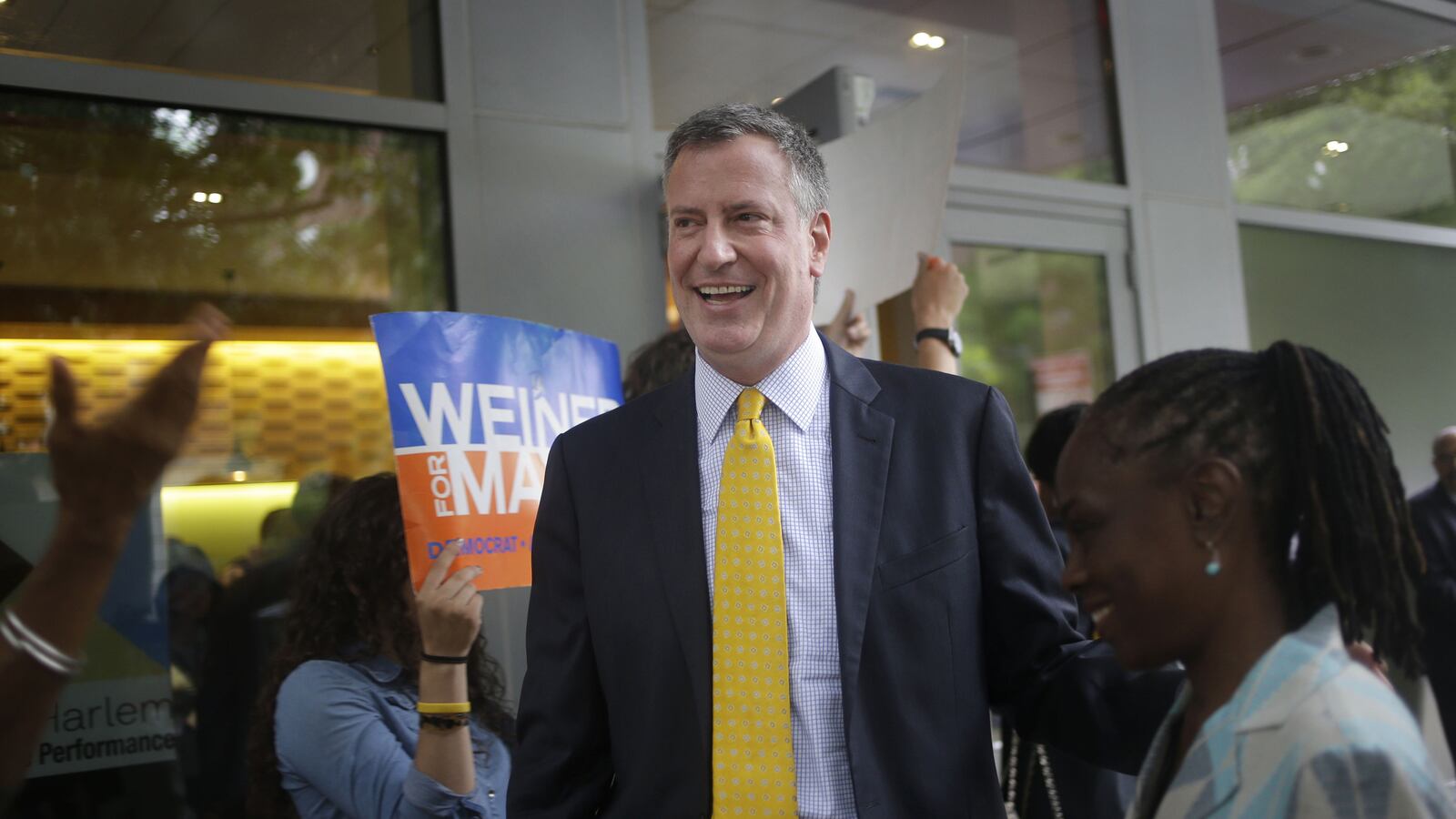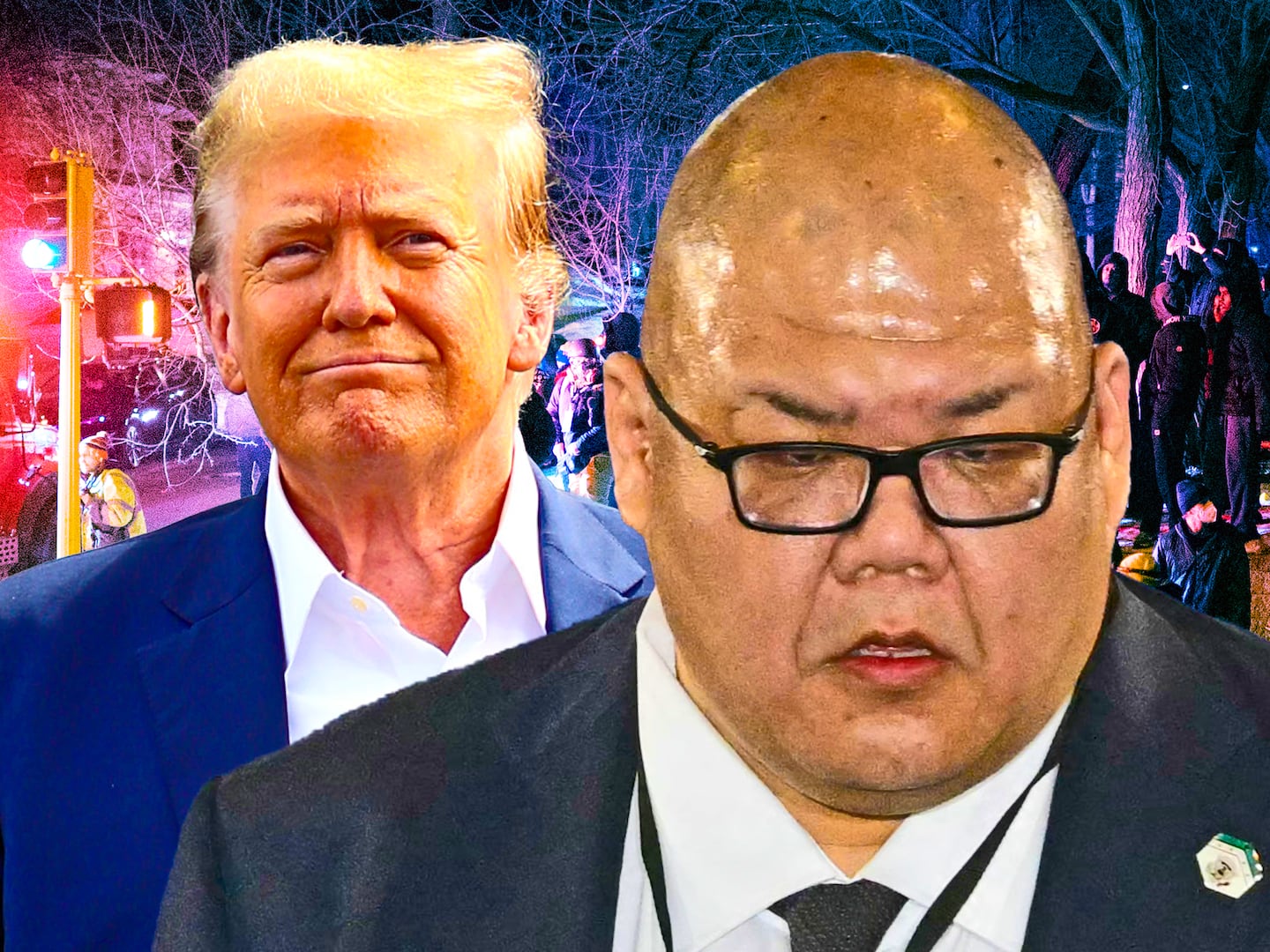A month ago, the New York City mayoral election revolved around two words: Carlos Danger. After former congressman Anthony Weiner admitted to another round of sexting with a young admirer, he dominated the news cycle for weeks. Other contenders quickly faded into the background.

Then, as Weiner’s numbers plummeted to 11 percent of likely voters from 25 percent in June, Bill de Blasio, New York’s public advocate and a brand-new face for many New Yorkers, started his surge. According to recent polls, de Blasio is now neck-and-neck with Christine Quinn, the New York City Council speaker who has long been considered the race’s frontrunner. Quinn and de Blasio are both polling at 24 percent of likely voters.
Little surprise then that at last night’s Democratic mayoral debate, hosted at Town Hall in Manhattan in front of a crowd of 1,300, de Blasio found himself the target of attacks from his six fellow candidates. For now, anyway, he has become the candidate to beat.
De Blasio fielded pointed questions about what he had accomplished as the city’s public advocate (a watchdog who acts as the link between city government and the public) and his plans to raise taxes on New Yorkers making $500,000 or more from 3.8 precent to 4.3 percent in order to pay for public pre-K.
Bill Thompson, New York’s former comptroller who came within a few points of beating current Mayor Michael Bloomberg during the 2009 election, called de Blasio’s pre-K plan “almost a tax in search of an idea.” Thompson and Quinn even teamed up to blast de Blasio about his claim that he is the only candidate that would end the city’s highly controversial stop-and-frisk policing tactic.
“This just isn’t true,” Thompson said, “stop lying to the people of New York.
De Blasio responded by explaining that he was the only candidate who would do all of the following: replace NYPD Commissioner Ray Kelly, install an inspector general for the NYPD, and allow people to sue over alleged unjust stops in state court.
Then Quinn had a question for Thompson: “are you satisfied with the answer you just got?” Surprise:
Thompson wasn’t, and de Blasio was made to answer again.
There were more subtle jabs at de Blasio all night.
Weiner asked Quinn a question about slush funds that also implicated de Blasio, and candidate John Liu, New York’s current comptroller, accused de Blasio and Thompson of being “billy-come-latelys” to the issue of stop-and-frisk without mentioning them by name.
It had already been a heady day for the Quinn and de Blasio campaigns, after comments from de Blasio’s wife, Christine McCray, to New York Times columnist Maureen Dowd created a brief firestorm.
McCray was originally quoted as saying Quinn is “not the kind of person I feel I can go up to and talk to about issues like taking care of children at a young age and paid sick leave,” which was interpreted as a reference to Quinn—who is openly gay—being childless.
Team de Blasio said McCray was misquoted, and the Times corrected the quote to “I don't see her speaking to the concerns of women who have to take care of children at a young age or send them to school and after school …” But Quinn doubled down on the quote, saying she was “deeply saddened” by the suggestion that she wouldn’t work hard for families because she didn’t have children.
Quinn and de Blasio rehashed the drama at the debate, as a runoff between the two candidates following the September 10 primary seems increasingly inevitable.
After the debate, a crowd of Quinn supporters held signs outside the venue reading “A Tale of Two de Blasios,” a riff on his inequality-focused “Tale of Two Cities” campaign slogan, and a jab at what the Quinn campaign is calling de Blasio’s record of flip-flopping on the issues. Their chanting could be heard an avenue away.
Even amid the Quinn-Thompson-de Blasio firestorm, Weiner still managed to get in a few crowd-pleasing zingers. When discussing what he would do in the event of a major emergency, like a blackout or hurricane, the audience giggled at Weiner’s use of the term “stiff wind.”
And when the candidates were asked whether they’d ever texted while driving, Weiner answered “yes” with a smile. The crowd lost it.





